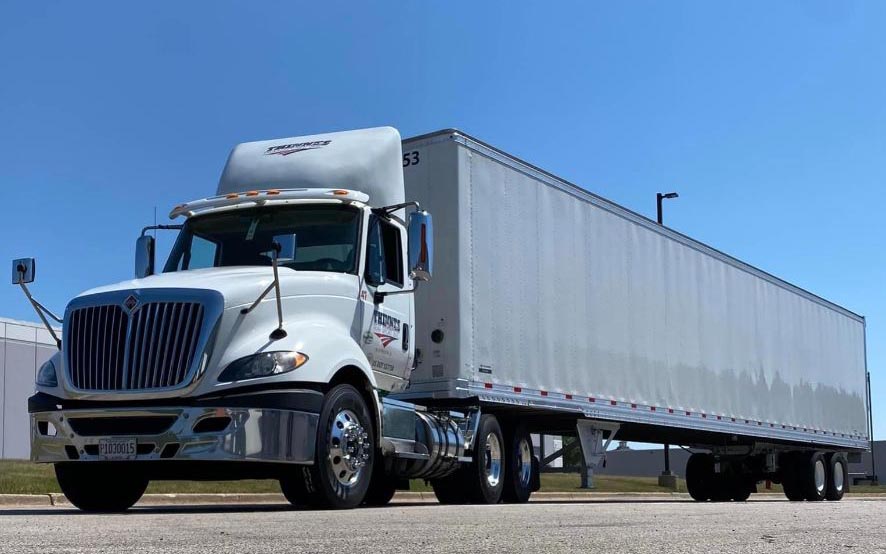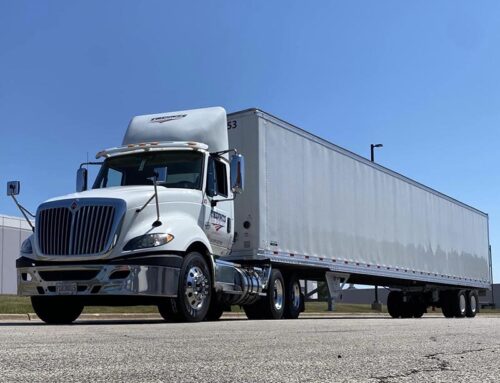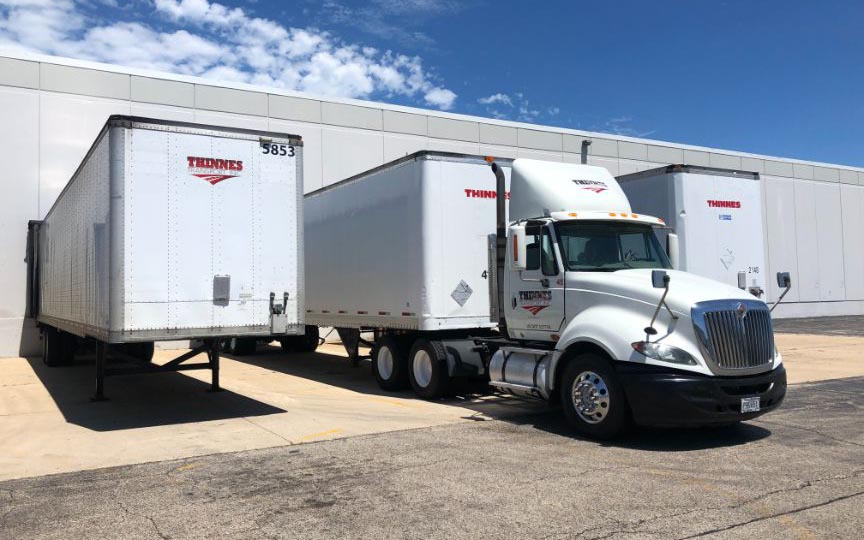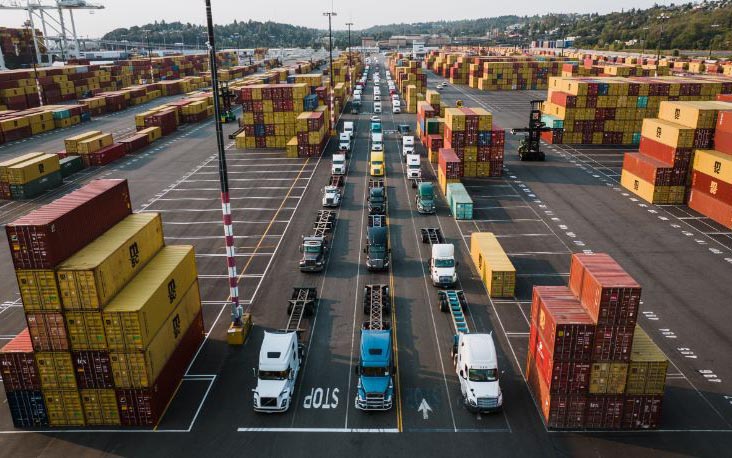FTL Common Terms And Regulations

When it comes to freight transportation, understanding the terms and regulations surrounding it is important. Shipping goods via a FTL (Full Truck Load) carrier can be an incredibly complex process if you don’t know what you’re doing! From determining appropriate freight classifications to recognizing how freight forwarding works, there are many elements that must be taken into consideration when moving cargo by truck. Here we will discuss some of the most common terms and regulations related to FTL Freight:
To start, you need to understand the basics of freight classifications. These classes determine pricing for shipments based on weight, density size and other factors. These factors help carriers accurately calculate costs associated with shipping specific items from point A to B. Knowledge regarding freight volumes is also essential since they provide insight into expected delivery times which helps customers plan more efficiently.
Freight forwarders have become increasingly important in recent years due to their ability to manage multiple aspects of shipment movement including customs clearances, documentation management and warehousing services. Using these services streamlines operations and decreases time spent dealing with tedious paperwork or scheduling activities required for successful deliveries. Additionally, having someone who understands different logistics solutions can help reduce overall transit costs while providing additional benefits such as insurance coverage against damages during transport.
With this information in hand, shippers will have a better grasp on the various components involved in FTL Freight Transportation; from selecting appropriate freight classes, knowing about freight forwarding options available, comprehending how freight volumes affect cost and delivery times – all these steps are crucial towards taking advantage of efficient and cost-effective shipping methods. Now let’s turn our attention towards exploring some of the key factors affecting shipping costs for FTL loads.
Factors Affecting Freight Shipping Costs
When it comes to freight shipping, the costs associated with transportation can be steep. Factors such as freight charges, transportation costs, and freight rates all play a role in determining how much shippers must pay for their goods to reach their destination. Navigating this complex landscape requires an understanding of how these factors interact and influence one another.
Freight charges are typically based on both weight and distance; heavier shipments will incur higher fees due to increased fuel use and other expenses. Transportation costs refer to any additional services required to ship the cargo safely, securely, or quickly (such as refrigeration). Freight rates also vary depending on where the shipment is going; certain routes may involve extra fees from governments or third-party companies that need to be factored into the overall cost.
It’s important for shippers to have a clear grasp of these variables before signing off on any deal. Having an accurate estimate of the total expense allows them to make informed decisions about which route best meets their needs while still staying within budget. With this knowledge in hand, businesses can then move forward towards finding suitable freight services and solutions for their particular situation.
Freight Services And Solutions
Freight services and solutions refer to the various means available for transporting goods from one point to another. Companies use these services to move their products with efficiency, reliability and flexibility. In this section, we will explore different freight service options and discuss how they can help businesses meet their goals.
The most common form of freight service is dedicated shipment, which allows a company’s entire cargo load to be handled by a single carrier. This guarantees that all shipments are delivered together in the same condition while offering considerable cost savings over using multiple carriers.
Truckload shipment is an ideal solution when it comes to shipping large amounts of cargo across long distances. While more expensive than other modes of delivery, truckload shipment provides greater security and faster transit times due to fewer stops along the route. Additionally, customers have access to specialized equipment such as refrigerated trucks for food items or flatbed trailers for heavy machinery parts.
Businesses also have the option of opting for customized freight solutions tailored specifically for their needs. Such solutions could include special packaging requirements or onsite pickup and delivery services depending on the type of product being shipped. Here are some advantages of customized freight solutions:
- Cost-effectiveness – save money by eliminating unnecessary costs associated with standard shipping methods
- Speed – reduce time spent handling paperwork before departure
- Flexibility – create individualized routes based on customer preference
- Reliability – ensure deliveries arrive safely and on schedule
- Security – protect cargo during transit through enhanced safety measures
With so many choices available in today’s market, finding the right fit for your business requires careful consideration. By taking advantage of modern freight services and customizing them according to your specific needs, you can improve efficiency and maximize profits without compromising quality or speed. Transitioning into efficient and flexible FTL Freight Shipping helps companies stay competitive in today’s digital world.
Efficiency And Flexibility In FTL Freight Shipping
The efficiency and flexibility of Full Truckload (FTL) freight shipping is essential for businesses that require speedy delivery. Take, for example, a company in the food industry which needs to transport its goods from one location to another within short time frames. FTL freight services enable this company to reach their desired destinations quickly with minimal cargo decrease.
Using exclusive trailer space for their shipments, these companies can benefit from greater security and reliability during transportation due to the extensive tracking tools provided by FTL truckload carriers. Furthermore, they have access to multiple delivery options depending on the urgency of their shipment — such as ground service or air shipping — all while being able to maintain control over pricing structures and transit times.
In addition, FTL freight allows customers to build relationships with dependable high-service level truckload carriers who provide efficient loading systems along with fast turnarounds without sacrificing quality assurance. This helps ensure timely deliveries and cost savings through improved inventory management and reduced customer wait times—allowing them better manage operations efficiently and effectively.
We understand that when it comes to shipping, you want reliable and cost-effective solutions. That’s why we strive to offer the best rates and services available in the industry. Our team of shipping experts can help you choose the right logistics solution for your needs, and provide you with real-time tracking information so you always know where your shipment is. We even offer same-day delivery for when you need your freight to be delivered quickly. With FTL Freight Shipping, you can rest assured that your cargo will arrive on time and in perfect condition.
Our next blog ‘Dependable, high-service level truckload carriers’ will explore how these specialized services offer further advantages towards guaranteed successful shipments.
Contact the Freight experts at Thinnes Transport for all your FTL and LTL needs.






